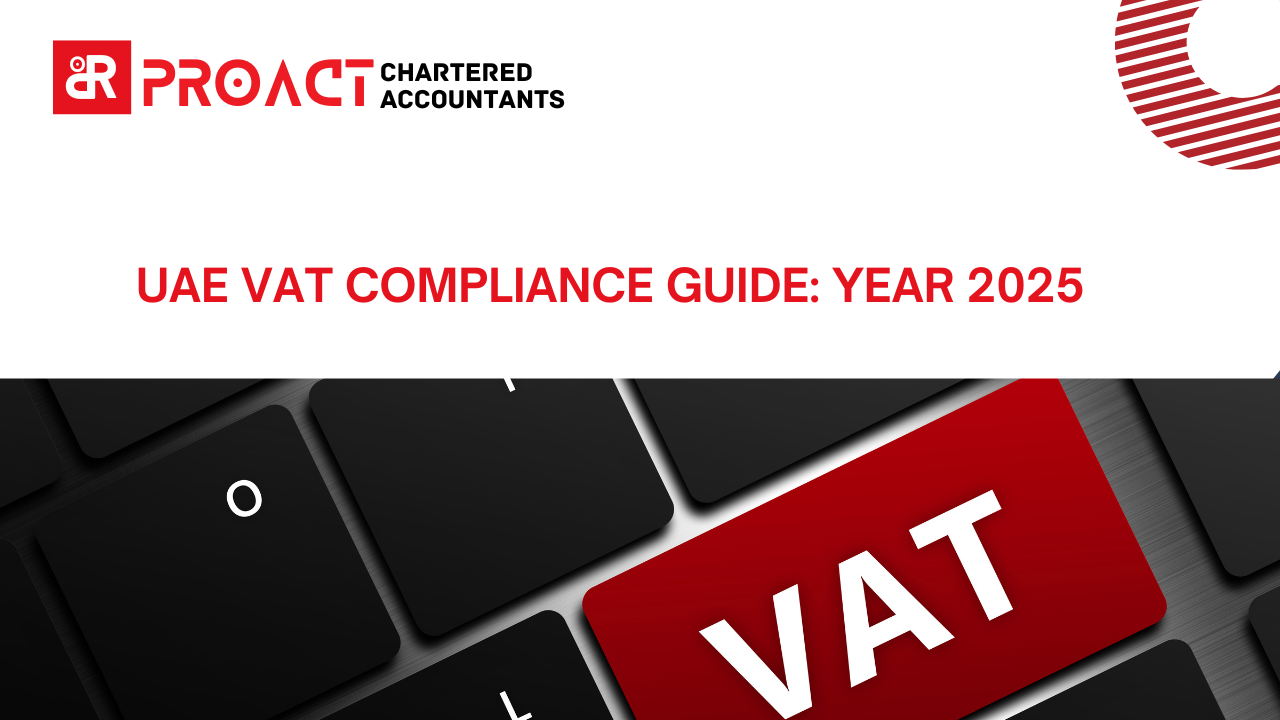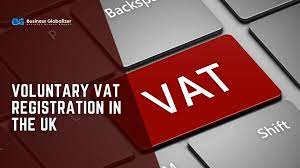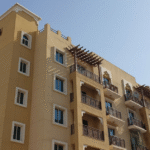Now Reading: 5 Strategic Tips for VAT Compliance in 2025
-
01
5 Strategic Tips for VAT Compliance in 2025
5 Strategic Tips for VAT Compliance in 2025

Table of Contents
Dubai’s real estate market remains a magnet for U.S. investors, offering 6-8% rental yields and no capital gains tax, despite a forecasted 15% price decline in H2 2025 per Fitch Ratings. The UAE’s Value Added Tax (VAT), implemented under Federal Decree-Law No. 8 of 2017, applies a 5% rate to commercial real estate transactions, with residential rentals and sales largely exempt.
As Dubai’s real estate sector sees AED 761 billion in transactions in 2024, compliance with VAT regulations is critical to avoid penalties of up to AED 50,000 (USD 13,610) for late filings or errors. This guide, written in clear, SEO-friendly language with an engaging tone, provides five strategic tips for U.S. expats to ensure VAT compliance in Dubai’s real estate market in 2025, supported by data, legal insights, and risk analysis.
5 Strategic Tips for VAT Compliance in 2025

1. Understand VAT Applicability for Real Estate Transactions
VAT applies at 5% to commercial property sales, leases, and services (e.g., brokerage, management), while residential property sales and rentals are exempt, except for the first sale of new residential units within three years, per the Federal Tax Authority (FTA). Short-term rentals (e.g., Airbnb) of commercial properties incur VAT, but residential Airbnb rentals are exempt.
- Action Plan: Classify properties correctly with the Dubai Land Department (DLD). For commercial properties in Business Bay (from AED 800,000), charge 5% VAT on leases (e.g., AED 5,000 on AED 100,000 rent).
- Why It Works: Proper classification avoids AED 20,000 penalties for misapplying VAT, ensuring compliance for 6-8% yields.
- Example: A U.S. investor leasing a Business Bay office for AED 120,000 annually charges AED 6,000 VAT, recoverable by VAT-registered tenants, avoiding AED 10,000 fines.
2. Register for VAT Timely to Avoid Penalties
Businesses with annual taxable supplies exceeding AED 375,000 (USD 102,096) must register for VAT within 30 days of crossing the threshold, per FTA. Voluntary registration is allowed for supplies above AED 187,500. For real estate firms, taxable supplies include commercial rents, brokerage fees, and management services.
- Action Plan: Register via the FTA’s EmaraTax portal by March 31, 2025, for 2024 activities exceeding AED 375,000. For a DMCC-based brokerage earning AED 500,000 in commissions, submit trade license and financial records.
- Why It Works: Timely registration avoids AED 10,000 penalties, enabling VAT recovery on expenses like AED 20,000 service charges for a 1,000 sq. ft. unit.
- Example: A U.S.-owned JLT firm registers by March 31, recovering AED 5,000 VAT on AED 100,000 in commercial expenses, boosting net returns by 0.5%.
3. File VAT Returns Accurately and On Time
VAT-registered businesses must file returns quarterly (for taxable supplies below AED 150 million) or monthly (above AED 150 million) within 28 days of the tax period’s end. For 2025, key deadlines include April 28 for Q1 (January–March) and July 28 for Q2 (April–June), per FTA.
- Action Plan: Use accounting software like QuickBooks to track VAT on commercial leases (e.g., AED 6,000 on AED 120,000 rent). File via EmaraTax, reconciling input (recoverable) and output (payable) VAT. Engage advisors.
- Why It Works: Accurate filings avoid AED 5,000 penalties for errors and AED 1,000 monthly for late submissions, preserving cash flow for 8-10% Airbnb yields.
- Example: A Dubai Marina commercial property owner files by April 28, reporting AED 10,000 output VAT and recovering AED 8,000 input VAT, netting AED 2,000 liability.
4. Maintain Proper VAT Records for Seven Years
The FTA requires businesses to retain VAT invoices, contracts, and financial records for seven years (15 years for real estate transactions), auditable on demand. This includes invoices for commercial rents, brokerage fees, and recoverable expenses like maintenance.
- Action Plan: Store digital records on cloud platforms like Zoho Books, detailing VAT on AED 100,000 commercial leases or AED 15,000 service charges. For a JVC property, archive DLD contracts and RERA approvals.
- Why It Works: Compliance avoids AED 50,000 penalties for missing records, ensuring smooth audits and 6-7% yields in emerging areas like Dubai South.
- Example: A U.S. investor retains invoices for a AED 1 million Business Bay sale (AED 50,000 VAT), passing FTA audits and avoiding USD 13,610 fines.
5. Leverage VAT Recovery for Cost Efficiency
VAT-registered businesses can recover input VAT on expenses like property management, utilities, and marketing for commercial properties, offsetting 5% VAT paid on costs, per FTA.
- Action Plan: Claim input VAT on AED 20,000 service charges for a 1,000 sq. ft. Business Bay office or AED 10,000 marketing for Airbnb rentals. Submit claims with quarterly returns, ensuring invoices include Tax Registration Numbers (TRNs).
- Why It Works: Recovery reduces operating costs by 5-10%, boosting net returns for 8-10% yields in prime areas like Dubai Marina.
- Example: A U.S. expat recovers AED 7,500 VAT on AED 150,000 commercial expenses, saving USD 2,042, reinvested into a AED 800,000 Dubai South unit.
Legal Considerations for U.S. Expats

- UAE Tax Framework:
- VAT: 5% on commercial transactions (e.g., sales, leases, services). Residential rentals and sales are exempt, except first sale of new units within three years. Recoverable for VAT-registered businesses.
- Corporate Tax: 9% on taxable income above AED 375,000, with 0% for Qualifying Free Zone Persons (QFZPs) or Small Business Relief (revenue below AED 3 million). Residential rental income is exempt.
- Compliance: Register for VAT within 30 days of exceeding AED 375,000. File returns within 28 days of tax period. Penalties: AED 10,000 for late registration, AED 5,000 for errors, AED 50,000 for missing records.
- U.S. Tax Framework:
- Reporting: Declare worldwide income under FATCA via Forms 8858, 1116, and Schedule E. Income taxed at 10-37%, capital gains at 0-20%.
- Foreign Tax Credit (FTC): Offset U.S. tax with UAE corporate tax paid (not VAT, as it’s indirect).
- FEIE: Exclude USD 130,000 of earned income if resident in UAE for 330 days.
- Freehold Ownership: U.S. investors can own properties in freehold zones (e.g., Dubai Marina, JVC), registered with DLD.
- Golden Visa: Properties worth AED 2 million qualify for a 10-year visa.
- Transaction Fees: 4% DLD fee (split with seller), 2% agency fee, AED 540-4,200 registration fees.
Risks and Mitigation
- Oversupply: 210,000–250,000 units by 2026 may soften commercial rents, impacting VAT liability. Focus on prime areas like Dubai Marina for 8-10% yields.
- Compliance Errors: Misclassifying residential vs. commercial properties risks AED 20,000 fines. Verify status with DLD.
- U.S. Tax Burden: IRS reporting reduces net returns. Use deductions for expenses (e.g., service charges) on Schedule E, consulting advisors.
- VAT Refund Delays: Slow FTA processing affects cash flow. File accurate returns early and maintain TRN-compliant invoices.
- Market Volatility: U.S. interest rates (6-7% in 2025) may curb investment. Dubai’s 18.7 million visitors in 2024 sustain demand for short-term rentals.
Step-by-Step Guide for U.S. Investors
- Assess VAT Liability: Review commercial transactions (e.g., Business Bay leases) for 5% VAT applicability. Confirm residential exemptions.
- Register for VAT: If taxable supplies exceed AED 375,000, register by March 31, 2025, via EmaraTax, avoiding AED 10,000 penalties.
- Track Transactions: Record VAT on commercial rents (e.g., AED 6,000 on AED 120,000) and expenses (e.g., AED 5,000 on AED 100,000 services) using QuickBooks.
- File Returns: Submit quarterly VAT returns by April 28 (Q1) and July 28 (Q2) 2025, claiming input VAT via EmaraTax.
- Retain Records: Store invoices and DLD contracts for seven years, ensuring compliance during FTA audits.
- Invest Strategically: Target commercial properties in Business Bay or residential Airbnb units in Dubai Marina for 6-10% yields.
- File U.S. Taxes: Report income on Schedule E, claiming deductions but not FTC for VAT, by April 15, 2025, consulting U.S. tax advisors.
Conclusion
VAT compliance in Dubai’s real estate market is essential for U.S. investors in 2025, with 5% VAT on commercial transactions and exemptions for residential rentals shaping profitability. By understanding applicability, registering timely, filing accurate returns, maintaining records, and recovering input VAT, investors can avoid penalties up to AED 50,000 and sustain 6-10% yields despite a 15% price decline forecast. watch more
read more: 9 Enlightening Effects of 2025 Emiratisation Goals



















